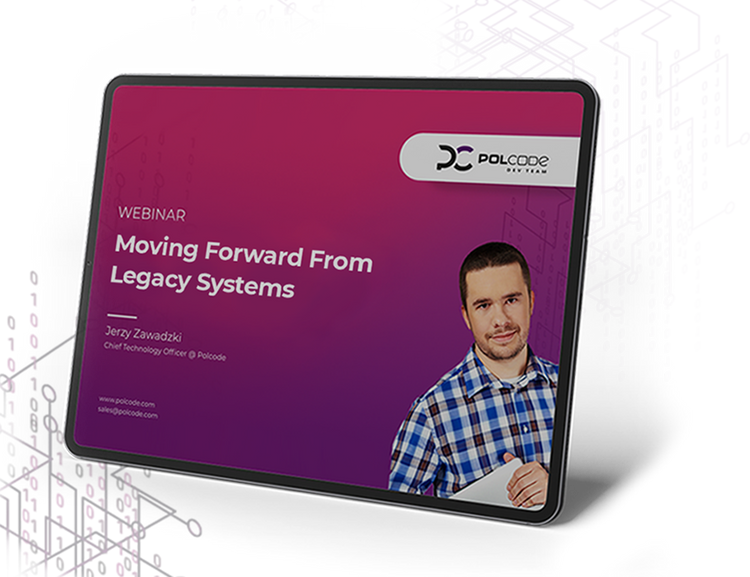In our insider article on building long-term business relationships, we talked about soft skills necessary to forge those precious bonds. Today, we’ll focus on the technical part of the subject.
#1 Issue Trackers
The absolute must-have tools are issue trackers, which improve communication and ensure nothing gets lost project-wise. Issue trackers let dev teams and Project Owners track bugs and changes in the code. Plus, they are convenient project management tools that make planning, monitoring statuses, executing and controlling progress feasible and reliable.
Issue trackers keep everything project-related (not only tasks but also important aspects of fostering transparent relationships with clients such as documentation, knowledge base, reports, progress trackers, or time loggers) in one place, helping all parties involved be on the same page.
The choice of issue trackers depends on the arrangements made during the project kick-off. And those tools, too, can be later altered depending on their efficiency in a given project.
Here are some of the practice-proven issue trackers we use at Polcode:
- Jira
- TeamWork
- Redmine
“In software development, any project managing software is invaluable and helpful, be it Jira, TeamWork, or Redmine. PM software should always be paired with project documentation software, for example, Confluence,” says Marta Kozłowska, Account Manager at Polcode.
At Polcode, we also often use Trello—a comprehensive app that can be used as an issue tracker, communication and project management tool.
#2 Communication Tools
Communication is a crucial element making up a seamless experience between the client and the software house. Since there are multiple communication tools to choose from to facilitate communication, here’s a take on the matter from Janusz Pietrzyk, Senior Ruby on Rails Developer at Polcode.
“When you ask programmers which communication tools to use, there are two possible answers. Some will say that it’s zen and chopsticks for catching flies and others will say that it’s krav maga and a baton,” laughs Janusz. “In all seriousness though, the most important part of working with a client is proper communication so anything that supports it will be good.”
“Depending on our agreement with the client, the communication tool can be Slack, Skype, Hangouts, and many, many more,” adds Marta. “For us, it’s important that the client feels comfortable with the tools and can be available at a scheduled time.”
Solid web conferencing software that works well for both the client and our teams is key to keep the communication smooth and allow for live preview content to be reviewed, discussed, or approved. We’re really happy with ZOOM, but we’re not afraid to experiment with Jitsi, daily.co, or UberConference, to name a few—whatever works best for our clients.
#3 Software Development Methodologies
Over the years, we’ve tested numerous agile methodologies, finding Scrum to be the most efficient both in the development of the client’s product and the work organization of our dev teams.
“When talking about software development methodologies, there’s the invaluable Scrum methodology. Scrum creates an atmosphere of productivity, team spirit, and cooperation,” highlights Dominik Raś, Senior Project Manager at Polcode.
There are clients who want to be actively included in the making of the project. We’ve hosted a number of clients in our office who wanted to work together with our dev teams. Agile methodologies come in handy here. “In the Scrum methodology, it’s often the client who is the Product Owner, makes all final project decisions, and attends sprint meetings, which further increases that sense of co-creation,” says Wojciech Hyzopski, CEO at Polcode.
However, we don’t always use Scrum in our projects. The choice really depends on the type of the project, budget, and expectations.
Regardless of which of the agile methodologies we implement in our projects, we only employ those that “support transparency, co-creation, and partnership,” Wojciech adds.
Treat the Client Individually to Forge Long-Term Business Relationships
With so many tools and methodologies to choose from when forging long-term business relationships, what matters the most is making the whole team comfortable with using them. We always try to look at each project individually, providing solutions that exceed the client’s expectations. It’s not only what’s in the project scope that matters but going beyond it. At Polcode, we put a lot of care into making the client satisfied both with the end product and our cooperation.
Polcode is an international full-cycle software house with over 1,300 completed projects. Propelled by passion and ambition, we’ve coded for over 800 businesses across the globe. Have an interesting project in mind? Contact us. Polcode. Just as you need IT.
On-demand webinar: Moving Forward From Legacy Systems
We’ll walk you through how to think about an upgrade, refactor, or migration project to your codebase. By the end of this webinar, you’ll have a step-by-step plan to move away from the legacy system.

Latest blog posts
AI-Powered Search for Healthcare LMS: A Proof of Concept Journey
Feb 18, 2026 by Marta Kozłowska
AI Usage & Safety Policy: Why Responsible AI Needs Rules, Not Assumptions
Feb 11, 2026 by Polcode Team
AI in Software Delivery: How Polcode Builds Predictable, Responsible, AI-Supported Systems
Feb 4, 2026 by Polcode Team
Ready to talk about your project?
Tell us more
Fill out a quick form describing your needs. You can always add details later on and we’ll reply within a day!
Strategic Planning
We go through recommended tools, technologies and frameworks that best fit the challenges you face.
Workshop Kickoff
Once we arrange the formalities, you can meet your Polcode team members and we’ll begin developing your next project.


